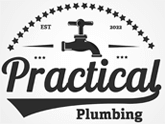As a homeowner, ensuring that your household has a reliable and efficient source of hot water is a top priority. Over time, the performance of your water heater can diminish, resulting in increased energy consumption, irregular water temperatures, or frequent repairs. When you find yourself contemplating water heater replacement, it’s vital to take the time to thoroughly evaluate your options and carefully consider several key factors. By doing so, you make an informed decision that best suits your family’s needs, long-term savings, and overall comfort.
Whether you’re dealing with a malfunctioning water heater or simply looking to upgrade for improved efficiency, our professionals are here to guide you through the process of selecting and installing a new water heating system. With years of experience in water heater repair, replacement, and installation, we possess the knowledge and expertise necessary to help you make the best choice for your home and family.
Stay tuned as we discuss the key factors you should consider before deciding to replace your residential water heater, including signs that it’s time for a replacement, understanding different types of water heaters, evaluating energy efficiency, and selecting the appropriate size and capacity.
By delving into these essential aspects, we aim to equip you with valuable insights and practical advice to make a well-informed decision that aligns with your unique needs and budget. Trust our professionals to provide exceptional service and expertise, ensuring that your water heater replacement is a successful and satisfactory endeavor.
Signs That It’s Time for a Water Heater Replacement
1. Age of the Unit
Traditional water heaters typically have a lifespan of 10 to 15 years, while tankless models can last up to 20 years. When your water heater reaches its expected lifespan, it’s advisable to start considering replacement options, even if it’s still functioning. Doing so can help you avoid a sudden breakdown and prevent the inconvenience of cold showers or interrupted hot water supply.
2. Frequent Repairs
If you find yourself consistently spending on repairs or if your water heater has recently undergone significant fixes, it may be more cost-effective to replace it rather than continuing to invest in a failing system.
3. Reduced Efficiency
Over time, a water heater’s efficiency can decline due to wear and tear or sediment buildup. This drop in efficiency can lead to increased energy bills and lukewarm water temperatures. A new, efficient water heater can provide more consistent hot water and reduce your overall energy consumption.
Understanding Different Types of Water Heaters
1. Storage Tank Water Heaters
The traditional storage tank water heater stores and heats a large quantity of water in a tank, providing a consistent supply of hot water when needed. While these models are generally less expensive upfront, they can be less energy-efficient due to standby heat loss.
2. Tankless Water Heaters
Also known as on-demand or instantaneous water heaters, tankless models heat water as it passes through the unit, providing hot water only when needed. These systems are typically more energy-efficient and long-lasting but may have a higher upfront cost.
3. Heat Pump Water Heaters
Heat pump water heaters use electricity to move heat from the air or ground to heat water. They can be much more energy-efficient than traditional electric water heaters but may require specific conditions, such as a consistently warm climate, to function efficiently.
Evaluating Energy Efficiency
Before selecting a new water heater, it’s essential to consider the energy efficiency of various models. Energy-efficient water heaters can significantly lower your energy bills, reduce environmental impact, and provide long-term savings on utility costs. Look for models with the ENERGY STAR label, which signifies that the water heater meets high energy-efficiency standards.
Selecting the Appropriate Size and Capacity
The size and capacity of your new water heater should align with your household’s hot water needs. It’s essential to account for factors such as the number of occupants, daily hot water usage, and peak demand times. Our professionals can help you determine the ideal size and capacity for your home, ensuring that your new water heater is tailored to your family’s requirements.
Conclusion:
As you navigate the process of water heater replacement, carefully considering key factors such as the age of your unit, different types of water heaters, energy efficiency, and sizing are crucial to making the best decision for your home. By staying well-informed and relying on the guidance of our professionals at Practical Plumbing, you can ensure that your new water heater is a sound investment in your family’s comfort and long-term savings. Reach out to us today for expert advice and exceptional service, simplifying your water heater replacement in Greeley, CO, and providing you with peace of mind.





